How Jupiter Became the God of Science?
Quid faciat laetas segetes, quo sidere terram vertere- Maecenas, ulmisque vitis conveniat
What makes the cornfield smile, beneath what star, Maecenas and turn the earth and fasten vines to elms. ”(Virgil Georgica, 1-2;1-4)
http://www.kunstpedia.com/articles/618/1/The-King-and-the-Oracle/Page1.html
Tum pater omnipotens fecundis imbribus Aether coniugis in gremium laetae descendit,
Then Aether, sire omnipotent, leaps down With quickening showers to his glad wife's embrace, (Virgil, Georgics II) The Ethiopian myth spoke about “raining of light from heaven”.
http://en.wikipedia.org/wiki/Ganymede_%28mythology%29
“Sun...the leader, the prince and the stersman of the other stars, the soul and the ordering principle of the world, so large that it enlightens and fills up the whole universe...the orbits of Mercury and Venus follow him as his satellites.” - Cicero
Virgil's Abiogenesis
Magnus ab integro saeculorum nascitur ordo (Virgil, IV Eclogue)
The translation: „The great march of the centuries begins anew” misses the beef of the philosophical abiogenesis: ab integro...nascitur ordo” The Latin term integer denotes 'the whole thing' or 'number of whole things.'
"... all things are one, and the One is all things, seeing that all things were in the Creator before he created them all. And rightly has it been said of Him that He is all things, for all things are parts of Him. And this being so, all things are linked together, and connected one with another in a chain extending from the lowest to the highest ; so that we see that they are not many, or rather, that all are one." (=evolutionary Tree of Life-rp) Asclepius I, 2a. The heliocentric pharaoh Akhenaten called the sun 'One'
Spontaneous Generation also referred to as abiogenesis, the theory that living things arise de novo without living parents from lifeless matter. The attempt of the ancients and medievals to explain the origin of lower forms of life from natural causes, rather than attributing it directly to a supermundane or divine power, was scientifically respectable.(Aquinas). The Gentile Christians, like the Qumran sectarians and like the Pythagorean heliocentrists before them, styled themselves “the sons of light”. Those who spring from a “fountain of light” like Noah mentioned in the Genesis Apocryphon (1 Qap-Gen) do not have natural fathers. They live eternally like Melchizedek described in 11 Qmelchizedek. Accordingly, we learn from Heb 7:1-3 that He is without father or mother or genealogy, and has neither beginning of days nor end of life, but resembling the Son of God, he continues a priest forever.” In Qumran, and later in the Christian writings the title “Son of God” functioned exactly like in the Graeco-Hellenistic world, as a term denoting a nature... Thomas Aquinas believed in abiogenesis.
The belief that mankind is not the sole representative of intelligent life in the Universe is very old. And it is more than a belief: as the philosopher Metrodorus put it in the third century B.C. ‘to consider the Earth the only populated world in infinite space is as absurd as to assert that in an entire field sown with millet, only one grain will grow.” St. Paul refers to this when he says that he was caught up to the Third Heaven (cp. The Third Rock from the Sun) and heard unutterable words in the body, or out of the body, I cannot tell” (2 Cor. 12:2-4). St. John also says he was “in the Spirit” i.e. in an ecstasy – when he saw the apocalyptic vision (Rev. 1:10). There was a class of diviners among the ancient Greeks called Extatici who used to lie in trances, and when they came to themselves gave strange accounts of what they had seen while they were “out of the body.” 2 Cor. 12: 2-3; cp. The LSD Trips): “I know about one of Christ’s followers who was taken up into the Third Heaven fourteen years ago. I don’t know if the man was still in his body when it happened, but God certainly knows. As I said, only God really knows if this man was in his body at the time. But he was taken up into paradise, where he heard things that are too wonderful to tell.” (Cp. “And we have created over you 7 Heavens.” – The Qur’an 2.178)
The Gentile Christian leaders were soon driven by Jewish persecution from Jerusalem to the synagogues of Samaria and Syria. But soon two victories were won; henceforth the Gospel was to be preached to Gentiles and converts were freed from Jewish customs. The Apostle of the Gentiles could now carry a Gospel emancipated from Judaism. The Church of Saints Sergius and Bacchus, built on the acropolis hill at Nitsanah, one of the places in the Negev, through which the heavy caravan traffic passed both in Nabatean and Byzantine times, played an important role not only in religious but also in the business life of the community. Its presbyter was also the chief money lender, who, according to one of the papyri, was not above charging considerably more than the legal rate of interest. Of extraordinary importance was the discovery at Nitsanah of parts of an amazing library of wide ranging scope. It was very catholic in its collection, extending from several pages of the Acts of St. George and fragments of the most anti-Semitic Fourth Gospel and a Syriac religious text, to approximately a hundred pages of a Latin-Greek lexicon to Virgil. While the Jewish Christians (“The Twelve”) spoke that Jesus was born in Betlehem, the Gentile Christians (“The Seven”) stressed his “coming down” from heaven (Ouranos, Jn. 6:38).: “For I came down from heaven, not to do my own will...) In the Gospel of Matthew 9:12 Jesus said, that he “has come” into the world, not that he was born. “No man hath ascended up to heaven, but he that came down from heaven.” Jesus of the Fourth Gospel is a representative of “a new race descended from Heaven on high,” foretold by Virgil in his “Fourth Eclogue”. We must assume that there were comparable libraries in some of the other, important Byzantine towns in the Negev. Paul became the Apostle of the Gentiles and Virgil – the Prophet of the Gentiles.
The Juvenile Jesus lectures on Heliocentrism
In 1910 a German fiction writer Ernest Adler von der Planitz published a number of 5th century Coptic papyri and other ancient fragments found in a tomb at Sakkara and purchased by a certain scholar named Baron von Rabenau. The legends written down in the document entitled The Letter of Benan are an ingenious presentation, in the best folk manner, of the hidden years in the life of Jesus.
A far-famed Egyptian astronomer named Putiphra dispatched the High Priest Ranebchru to the land of the Hebrews (Unlike the Romans, he did not call it Palestine! Interestingly, there is no name Palestine in the Koran either!) to learn the meaning of the appearance of the new star, Siriu, or The Scorching One. In Betlehem he found a child born in a cave the very moment Siriu appeared in the heavens. Ranebchru promised his parents that the child will be raised under the tutelage of the great astronomer Putiphra and Pinehas rabbi of the Jewish temple in nearby On (Heliopolis). When Putiphra died 12 years later Jesus returned to his parents in Nazareth. During his visit to Jerusalem to celebrate the Passover he lectured in the temple all the learned doctors and rabbis on the principles of heliocentric astronomy and on the interstellar mysteries:
"Behold a greater than Solomon is here" (Jesus said of himself, Matthew 12: 41, 42).
“A learned astronomer was present in the assembly at the temple, and he arose and asked Jesus: 'What do you know about astronomy?' Jesus without hesitation or faltering, explained the number of spheres and the heavenly bodies, and the meaning of their numbers; he expounded on their different natures and operations; he defined their aspects, triangular, square or sextile; he interpreted their course, direct or retrograde; he gave the motion of the planets each day, and each hour of the day; and he ended with a commentary on the interstellar mysteries beyond the reach of reason. And the astronomer turned and asked: “Pray, who can that be.” But this stuff was not included in the canonical Gospels.
Verse 51 of the Syrian version (Peshitta) of Luke 2 elaborates the incident of the Gospel of Mark so that it will be reverberating throughout the following centuries:
“And philosopher who was there present, a skillful astronomer, asked Jesus the Lord whether he studied astronomy. And the Lord Jesus answered him and explained the number of the spheres, and of the heavenly bodies, their nature and operations, their oppositions; their aspects, triangular, square and sextile; their course, direct or retrograde; the twenty-four and sixtieth of twenty-fourths, and other things beyond the reach of reason.” Almost a verbatim copy of the Letter of Benan's summary of Jesus' lecture. But the Greek evangelists of the New Testament don't mention this lecture in one word. Philosophical heliocentrism could not have been reconciled with the Hebrew Bible.
Virgil, the Miracle Maker
The tomb known as "Virgil's tomb" is found at the entrance of an ancient Roman tunnel (also known as "grotta vecchia") in the Parco di Virgilio in Piedigrotta, a district two miles from old Naples, near the Mergellina harbor, on the road heading north along the coast to Pozzuoli. The site called Parco Virgiliano is some distance further north along the coast. While Virgil was already the object of literary admiration and veneration before his death, in the following centuries his name became associated with miraculous powers, his tomb the destination of pilgrimages and veneration. The poet himself was said to have created the cave with the fierce power of his intense gaze.
It is said that the Chiesa della Santa Maria di Piedigrotta was erected by Church authorities to neutralize this adoration and "Christianize" the site. The tomb, however, is a tourist attraction, and still sports a tripod burner originally dedicated to Apollo. (Wiki)
On the cover of John Paul II's The Roman Triptych is reproduced Michael Angelo's Libyan Sibyl from the Sistine Chapel. Well, it is a well-known fact from the Church history that the Christian fathers and their followers made themselves so ridiculous by their fatuous faith in the Sibyls that they were derisively called “Sibyllists” by the Pagans. Virgil was a “sibyllist” (http://www.infidels.org/library/historical/joseph_wheless/forgery_in_christianity/chapter_...)
The Pope caped his speech, rehabilitating Galileo in 1992, with a generous tribute to Galileo the “theologian”: ‘Paradoxically, Galileo, a sincere believer, showed himself to be more perceptive in this regard than the theologians who opposed him.’ In January of 2008 Pope Benedict XVI had the astronomical observatory that has been part of Castel Gandolfo, south of Rome, for more than 75 years dismantled. Galileo had been exiled out of the Vatican.
***
The following are excerpts from John E. Rembsberg's The Christ (chapter 8 His Character and Teachings)
Dr. Jules Soury's Diagnosis
Jesus cursed a living tree and it died; Mohammed blessed a dead tree and it lived. The alleged conduct of Jesus on many occasions, notably his harsh treatment of his mother, his abuse of the Pharisees, his purging the temple and his cursing the fig tree, is not the conduct of a rational being, but rather that of a madman. If these stories be historical they would indicate that he was not wholly responsible for his words and acts. Dr. Jules Soury, of the University of France, believes that he was the victim of an incurable mental disorder. In a work on morbid psychology, entitled Studies on Jesus and The Gospels, Dr. Soury cites a long array of seemingly indisputable facts in support of his theory. From his preface to the work, I quote the following:
"In the present work Jesus makes his appearance, perhaps for the first time, as a sufferer from a grave malady, the course of which we have attempted to trace.
"The nervous, or cerebral disorder, at first congestive and then inflammatory, under which he labored, was not only deep-seated and dangerous -- it was incurable. Among us at the present time that affection may be seen daily making kings, millionaires, popes, prophets, saints, and even divinities of poor fellows who have lost their balance; it has produced more than one Messiah.
"If we be right in the interpretation of data which has been followed in the study of morbid psychology, Jesus, at the time of his death, was in a somewhat advanced stage of this disorder. He was, to all appearance, cut off opportunely; the gibbet saved him from actual madness.
What was his first miracle?
"The Son of Man is come eating and drinking; and ye say, behold a gluttonous man and a winebibber" (Luke vii, 34).
John: "There was a marriage in Cana of Galilee.... And both Jesus was called, and his disciples, to the marriage. And when they wanted wine, the mother of Jesus saith unto him, They have no wine.... And there were set there six water pots of stone,...containing two or three firkins apiece. Jesus saith unto them, Fill the water pots with water. And they filled them up to the brim" (ii, 1-7). This water he turned into wine.
Here is Christ supplying a party already "well drunk" with more than one hundred gallons of wine. As they were intoxicated when he performed the miracle, would it not have been better for them and better for the millions who have accepted him as a moral guide, if at the beginning of the feast he had turned the wine into water?
The morality taught by Jesus suffers in comparison with that taught by Mohammed. Mohammed prohibited the use of intoxicating drink,and the Mohammedans are a temperate people; Jesus sanctioned the use of intoxicating drink, and the Christian world abounds with drunkenness.
Referring to the miracle at Cana, Strauss says: "Not only, however, has the miracle been impeached in relation to possibility, but also in relation to utility and fitness. It has been urged both in ancient and modern times, that it was unworthy of Jesus that he should not only remain in the society of drunkards, but even further their intemperance by an exercise of his miraculous power" (Leben Jesu, p. 584).
Did he oppose slavery?
All: He did not.
"At the time of the advent of Jesus Christ, slavery in its worst forms prevailed over the world. The Savior found it around him in Judea; the apostles met with it in Asia, Greece and Italy. How did they treat it? Not by denunciation of slave-holding as necessarily sinful." -- Prof. Hodge of Princeton.
"I have no doubt if Jesus Christ were now on earth that he would, under certain circumstances, become a slaveholder." -- Rev. Dr. Taylor of Yale.
Rousseau says: "Christ preaches only servitude and dependence.... True Christians are made to be slaves."
Did he favor marriage?
Matthew: He advocated celibacy, and even self-mutilation as preferable to marriage (xix, 10-12).
Following this teaching of their Master, Christians, many of them, have condemned marriage. A Christian pope, Siricius, branded it as "a pollution of the flesh." St. Jerome taught that the duty of the saint was to "cut down by the axe of Virginity the wood of Marriage." Pascal says: "Marriage is the lowest and most dangerous condition of the Christian."
G. W. Foote of England says: "Jesus appears to have despised the union of the sexes, therefore marriage, and therefore the home. He taught that in Heaven, where all is perfect, there is neither marrying nor giving in marriage."
"And I looked, and, lo, a Lamb stood on the mount Sion and with him an hundred forty and four thousand…These are they which were not defiled with women; for they are virgins. These are they which follow the Lamb whithersoever he goeth. These were redeemed from among men, being the first fruits unto God and to the Lamb." - Rev. 14:1-4
(In the time period of pedophile scandals rocking the Catholic Church it will be instructive to remind of a 1985 “New York Native” interview with Joseph Sonnabend (“leading AIDS doctor”). “The rectum”, Sonnabend said, “is a sexual organ, and it deserves the respect a penis gets and a vagina gets.” Anal intercourse has been the central activity for gay men and for some women for all of history. The “leading AIDS doctor” did not know that the people of Katmandu suffer from chronic intestinal parasites caused by drinking water contaminated with fecal matter. “Versatile” anal and oral sex and new behaviors such as analingus, or rimming facilitated the spread of otherwise difficult-to-transmit microbes. Gay men created almost laboratory conditions both to amplify STDs and then to spread these diseases throughout the world. And all these facts prove that the Bible is, indeed the God inspired Book of Books. What a shame that it is a Pope who wants to exile this Book from the memory of mankind! We already know that he will fail! Gay sex breaks every rule of decent hygiene; it is chemical and biological warfare on human societies.-rp)
What original rules of table observance did Jesus teach his disciples?
Matthew: To abstain from washing their hands before eating. "They wash not their hands when they eat bread" (xv, 2).
John: To wash their feet after eating. "He riseth from supper, and laid aside his garments; and took a towel and girded himself. After that he poured water into a basin, and began to wash the disciples' feet, and to wipe them with the towel wherewith he was girded" (xiii, 4, 5).
The proneness of Christ's followers to neglect his ordinances and precepts which require some sacrifice or effort to obey, and the readiness with which they observe those which do not, find a fitting illustration in the reception accorded these teachings. While the early Christians, many of them, accepted the first as a religious obligation not to be violated, the second was ignored. Writing of Christian monks and nuns, Lecky says: "The cleanliness of the body was regarded as a pollution of the soul and the saints who were most admired had become one hideous mass of clotted filth St. Athanasius relates with enthusiasm how St. Antony, the patriarch of monachism, had never, to extreme old age, been guilty of washing his feet.... St. Abraham the hermit, however, who lived for fifty years after his conversion, rigidly refused from that date to wash either his face or feet.... St. Euphraxia joined a convent of one hundred and thirty nuns, who never washed their feet, and who shuddered at the mention of a bath" (European Morals, Vol. II, pp. 109, 110).
A year or so ago the McCarthyist article by Prof. Itzhak Galnoor was posted here The victim of Galnoor's witchhunt and McCarthyist persecution was Prof. Nahum Rakover, a distinguished scholar of Jewish law. In the 1990s he was an advisor for the Israeli government in matters of Jewish law. After the 1994 Supreme Court decision concerning the granting of spousal perquisites to the gay partner of an El Al steward, Rakover was asked to advise the Knesset what the position of Jewish law was on homosexuality. Rakover stated that Jewish law regards homosexuality as an abomination morally equivalent to bestiality*, as stated clearly in Leviticus. He did not say this was his own personal opinion, he simply answered the question about Jewish law, as he was being paid and employed to do.
Hebrew University Prof wants Academic Freedom to be Denied to God and Moses
Did he not teach the doctrine of demoniacal possession and exorcism?
Synoptics: He did.
After alluding to the prevalency of superstition among the Jews of this period, Renan says: "Jesus on this point differed in no respect from his companions. He believed in the devil, whom he regarded as a kind of evil genius, and he imagined, like all the world, that nervous maladies were produced by demons who possessed the patient and agitated him" (Life of Jesus, p. 59). Dr. Geikie says: "The New Testament leaves us in no doubt of the belief, on the part of Jesus and the Evangelists, in the reality of these demoniacal possessions" (Life of Christ, Vol. II, p. 573).
Demonology was born of ignorance and superstition. In this debasing superstition Jesus believed. It was a part of his religion, and has remained a part of Christianity, for while the more intelligent of his professed disciples have outgrown this superstition they have to the same extent outgrown Christianity. The more ignorant, the more depraved, and, at the same time, the more devout of his followers, still accept it.
Regarding this superstition, the author of Supernatural Religion says: "The diseases referred to by the gospels, and by the Jews of that time, to the action of devils, exist now, but they are known to proceed from purely physical causes. The same superstition and medical ignorance would enunciate the same diagnosis at the present day. The superstition and ignorance, however, have passed away, and, with them, the demoniacal theory. In that day the theory was as baseless as in this. It is obvious that, with the necessary abandonment of the theory of 'possession' and demoniacal origin of disease, the largest class of miracles recorded in the gospels is at once exploded. The asserted cause of the diseases of this class, said to have been miraculously healed, must be recognized to be a mere vulgar superstition" (p. 159).
What did he require of his disciples?
"If any man come to me, and hate not his father, and mother, and wife, and children, and brethren and sisters, yea, and his own life also, he cannot be my disciple" (Luke xiv, 26).
It is scarcely possible in this age of enlightenment and unbelief to realize what sorrows and miseries these accursed teachings of Christ once caused. The eminent historian Lecky, in his History of European Morals, has attempted to describe some of their awful consequences. From his pages I quote the following:
"To break by his ingratitude the heart of the mother who had borne him, to persuade the wife who adored him that it was her duty to separate from him forever, to abandon his children, uncared for and beggars, to the mercies of the world, was regarded by the true hermit as the most acceptable offering he could make to his God. His business was to save his own soul. The serenity of his devotion would be impaired by the discharge of the simplest duties to his family. Evagrius, when a hermit in the desert, received, after a long interval, letters from his father and mother. He could not bear that the equable tenor of his thought should be disturbed by the recollection of those who loved him, so he cast the letters unread into the fire. A man named Mutius, accompanied by his only child, a little boy of eight years old, abandoned his possessions and demanded admission into a monastery. The monks received him, but they proceeded to discipline his heart. 'He had already forgotten that he was rich; he must next be taught to forget that he was a father' His little child was separated from him, clothed in dirty rags, subjected to every form of gross and wanton hardship, beaten, spurned and ill-treated. Day after day the father was compelled to look upon his boy wasting away with sorrow, his once happy countenance forever stained with tears, distorted by sobs of anguish. But yet, says the admiring biographer, 'though he saw this day by day, such was his love for Christ, and for the virtue of obedience, that the father's heart was rigid and unmoved' (Vol. II, 125, 126).
Was he rude?
Relate his treatment of the Pharisee who invited him to dine with him.
Luke: "And as he spake, a certain Pharisee besought him to dine with him; and he went in, and sat down to meat. And when the Pharisee saw it, he marveled that he had not first washed before dinner. And the Lord said unto him, now do ye Pharisees make clean the outside of the cup and the platter, but your inward part is full of ravening and wickedness, Ye fools ... hypocrites!" (xi, 37-44.)
Was such insolence of manners on the part of Jesus calculated to promote the interest of the cause he professed to hold so dear at heart? Supposing a Freethinker were to receive an invitation to dine with a Christian friend and were to repay the hospitality of his host with rudeness and abuse, interrupting the ceremony of "grace" with an oath or a sneer, and showering upon the head of his friend such epithets as "hypocrite" and "fool." Would such insolent behavior have a tendency to gain for him the world's esteem or aid the cause he represents? And are we to approve in a God conduct that we regard as detestable in a man? It may be urged that God is not subject to the rules of human conduct. Grant it; but is it necessary for him in order to exhibit his divine character to assume the manners of a brute?
Roman Pytel, Ph.D.
I was invited to publish my article At the Sources of the Copernican Astronomy in a Polish magazine of the Friends of Astronomy (Urania) by a Polish astronomer who studied in Moscow. The man, in order to survive, is now teaching ecology i.e. the science of worshiping the Copernican goddess Gaia whom pope John Paul II hugged on his every pilgrimage.
Wednesday, August 25, 2010
Subscribe to:
Post Comments (Atom)

















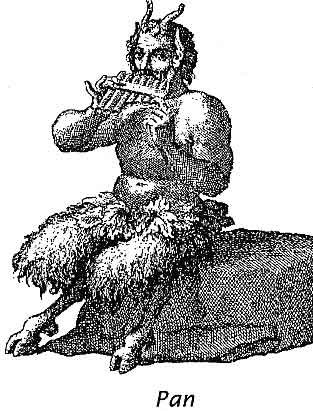














































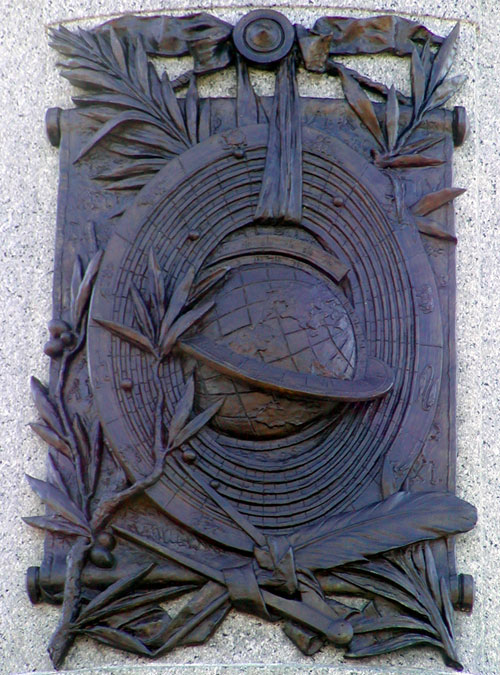


































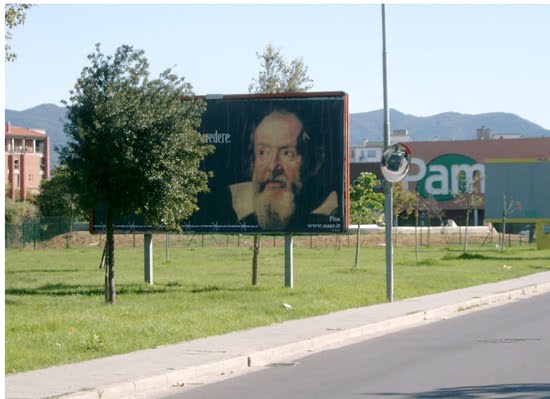




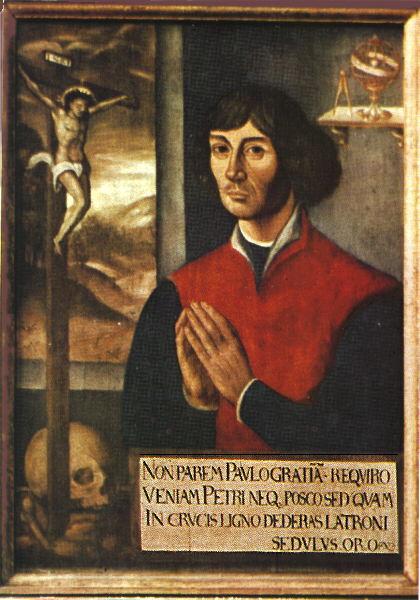




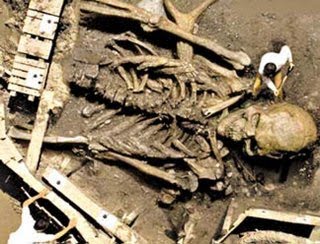






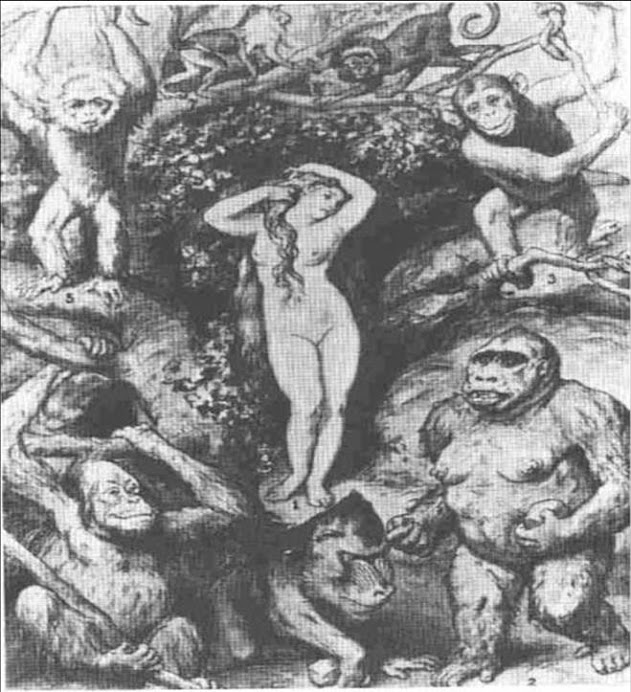



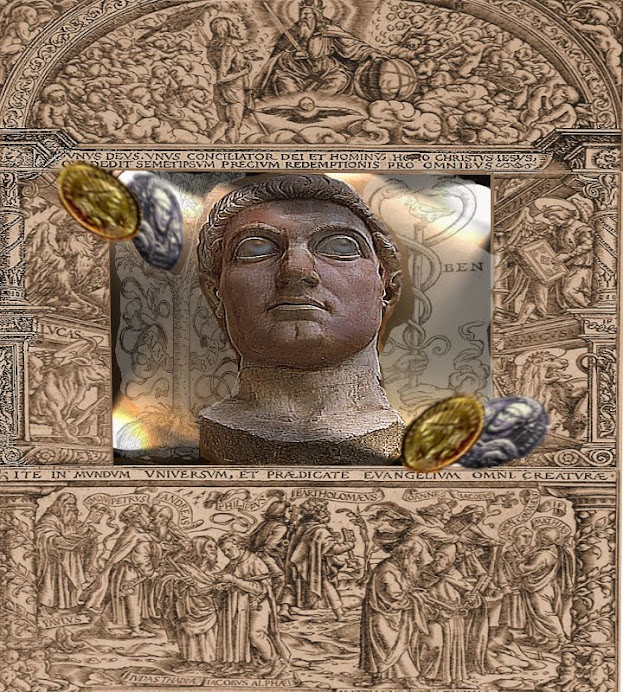



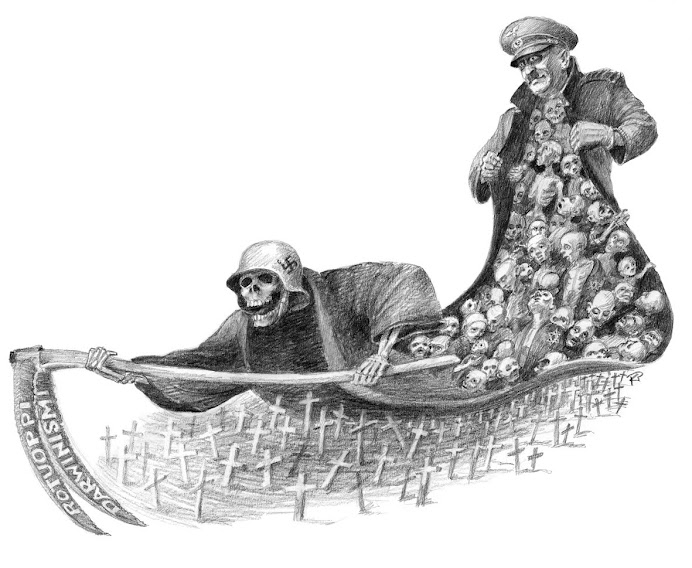










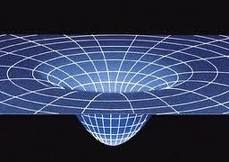




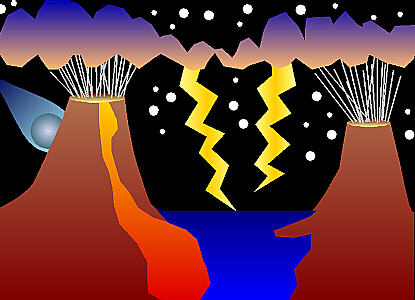


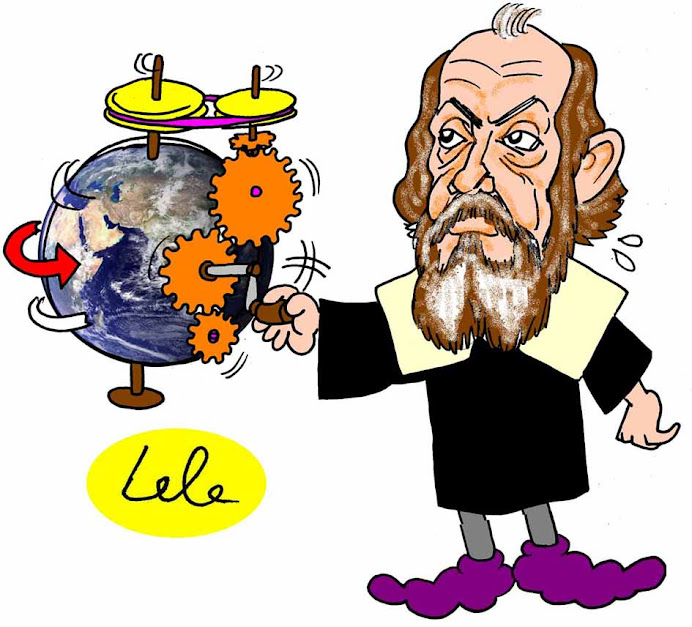





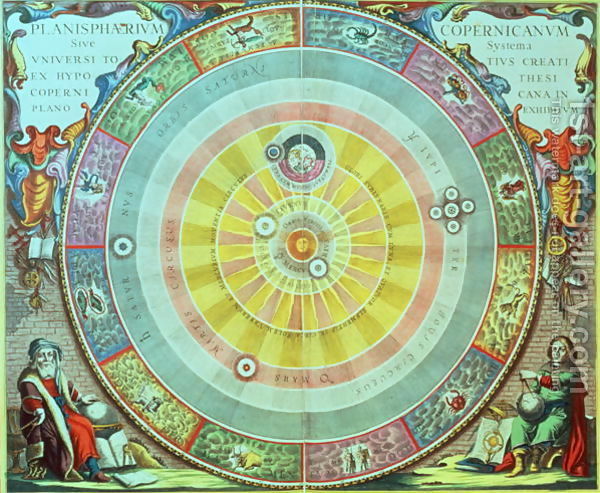







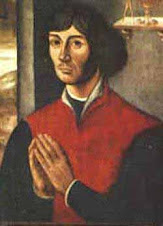.jpg)







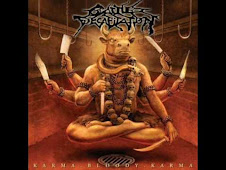











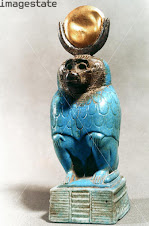








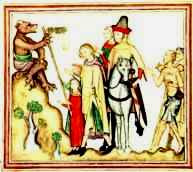

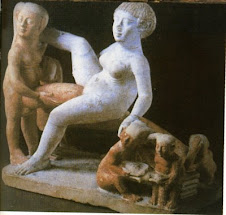











.jpg)














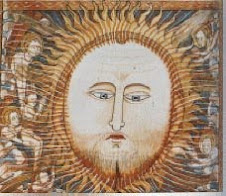






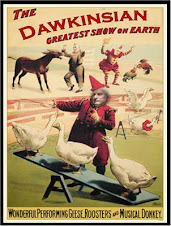







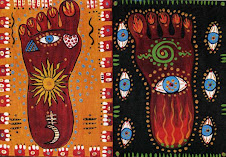
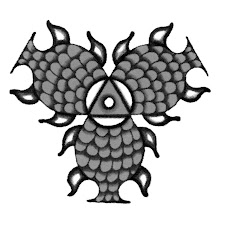







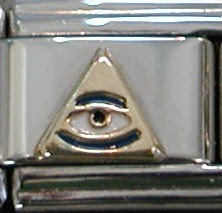



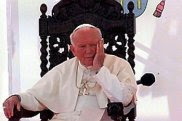















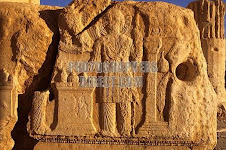
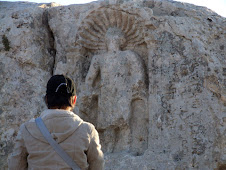






.gif)





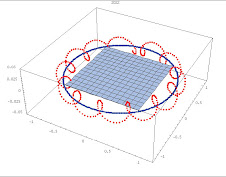















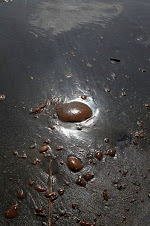









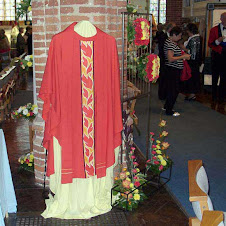


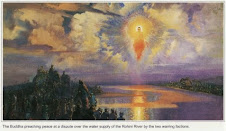



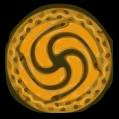

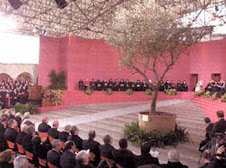

















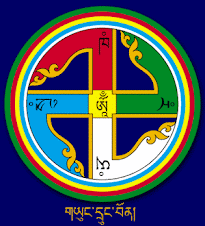

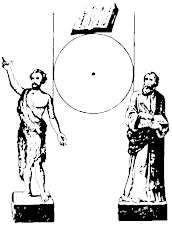











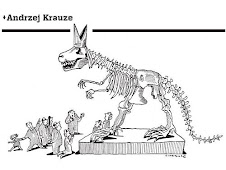

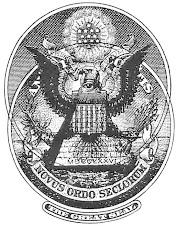









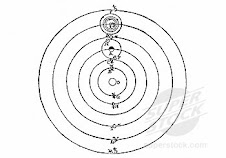

.jpg)













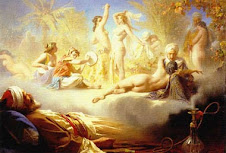
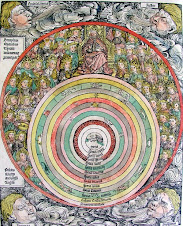












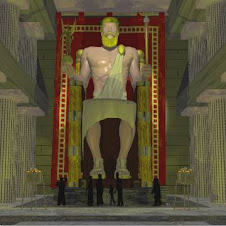


















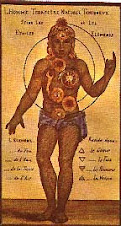





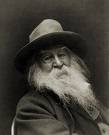
















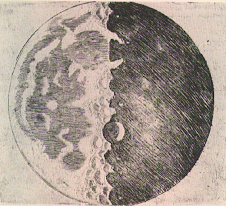








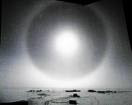











































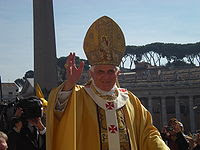

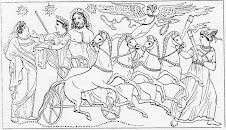



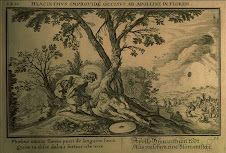




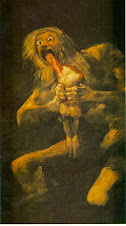










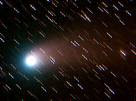









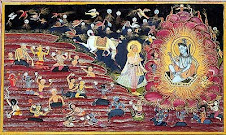


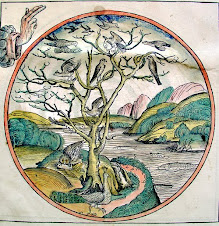




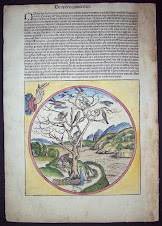









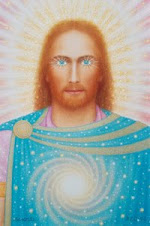++of+the+Sun+god..jpg)

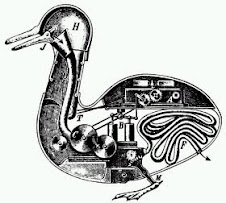





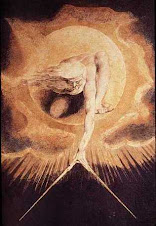
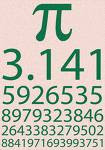

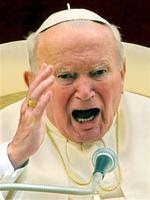


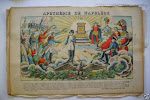



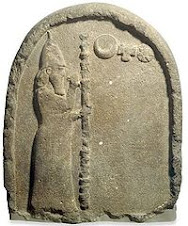





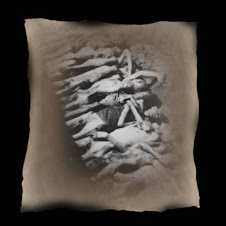



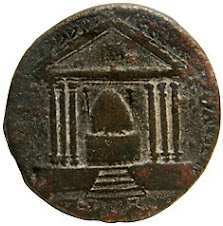
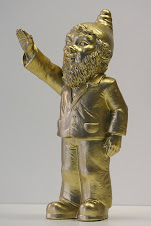

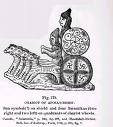
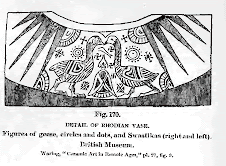




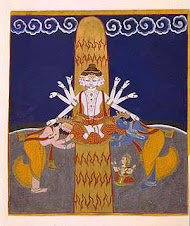

No comments:
Post a Comment